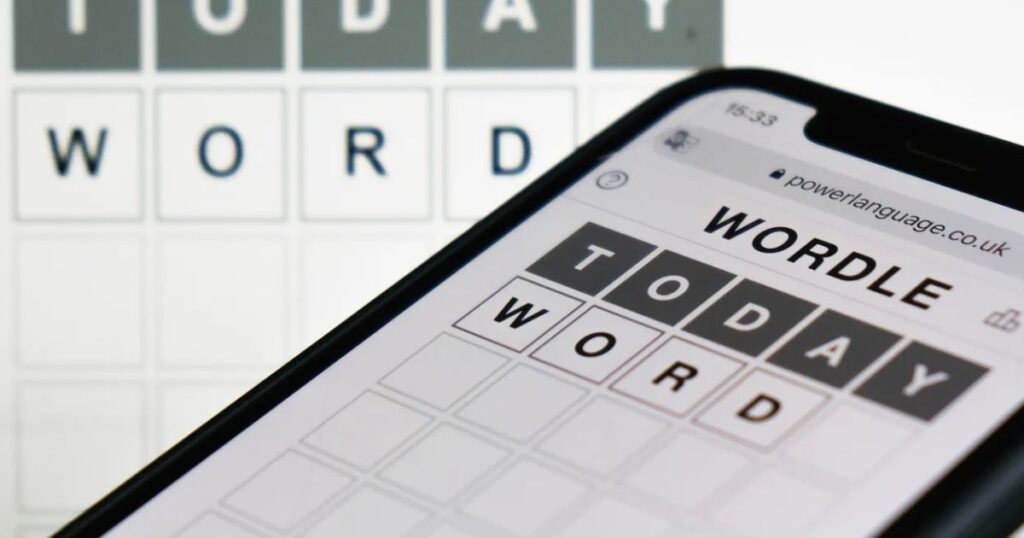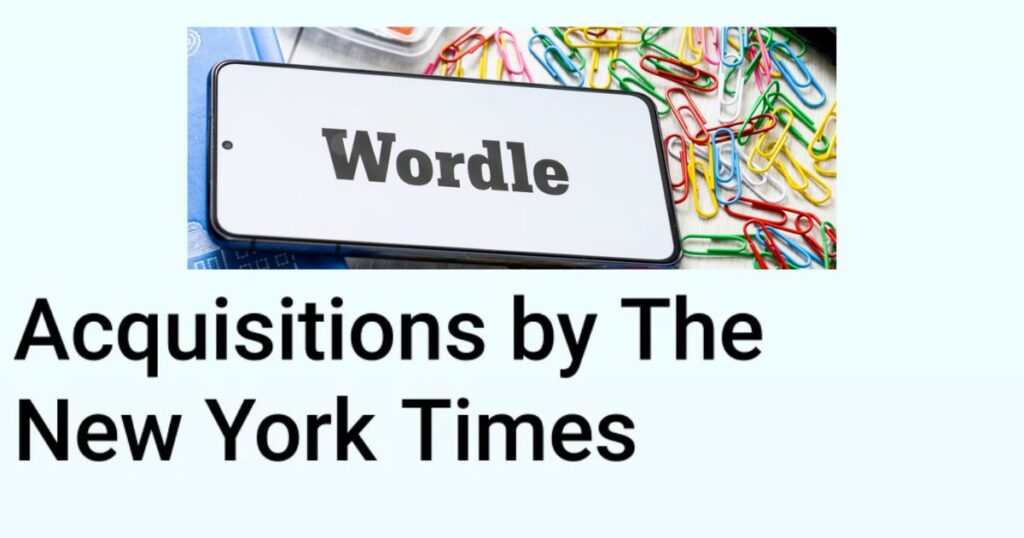Introduction
The viral word game phenomenon known as Wordle has revolutionized how millions start their day, transforming from a simple word puzzle into a global cultural touchstone.
This ingenious creation challenges players to decode a five-letter word in six attempts, but its impact extends far beyond its basic premise. Mashable, a leading digital culture and tech platform, has been at the forefront of documenting this remarkable journey.
The game’s unprecedented success stems from its brilliant fusion of accessibility and community-building. Its clean, minimalist design strips away unnecessary complications, presenting players with a pure, engaging challenge that has captivated audiences worldwide.
Mashable’s coverage has consistently highlighted how this deceptively simple game has woven itself into the fabric of daily life. What sets Wordle apart is its remarkable ability to create shared experiences.
When players share their distinctive patterns of green and yellow squares across social media platforms, they’re not just displaying scores – they’re participating in a global conversation.
This aspect of communal engagement has been particularly emphasized in Mashable’s reporting, showcasing how a straightforward word game has become a bridge connecting people across continents.
The Origins of Wordle Mashable: How It All Began

The story of Wordle begins with Josh Wardle, a software engineer whose creation would unexpectedly capture the world’s attention. Initially designed as a personal gift for his partner during the pandemic, this passion project embodied the perfect blend of challenge and accessibility.
When released to the public in late 2021, the game’s organic growth demonstrated the power of authentic connection in the digital age. Through its comprehensive coverage, Mashable has explored how Wardle’s commitment to game design principles prioritizing user experience set Wordle apart.
In an era where most digital products compete for attention through flashy features and constant notifications, Wordle’s refreshing absence of ads and microtransactions marked a return to fundamentals.
The decision to maintain Wordle as a free, universally accessible game reflected a philosophy rarely seen in successful digital products. Mashable has frequently noted how this approach, prioritizing player enjoyment over immediate monetization, created a foundation of goodwill that would prove instrumental in the game’s explosive growth.
Why Wordle Mashable Became a Global Sensation
The meteoric rise of Wordle as a viral phenomenon can be attributed to its perfect storm of elements. The game’s intuitive nature eliminates barriers to entry, while its daily puzzle format creates a rhythm of anticipation and satisfaction.
This careful balance between accessibility and challenge has proven irresistible to players worldwide. Mashable’s analysis has revealed how Wordle’s success in fostering community engagement stems from its innovative sharing mechanism.
The distinctive grid of colored squares serves as both a personal achievement badge and a subtle invitation to others, transforming every player into an inadvertent ambassador for the game.
The game’s universal appeal transcends traditional gaming demographics. Whether accessed on a high-end smartphone or a basic web browser, Wordle delivers the same pure experience to everyone.
This democratic approach to gaming has been consistently praised in Mashable’s coverage, highlighting how the game has become a rare unifying force in an increasingly fragmented digital landscape.
Click For More Informatino: Exploring the Fascinating World of Methatreams: A Deep Dive
The Role of Social Media in Wordle’s Success

The explosive growth of Wordle owes much to its strategic presence on social media platforms, particularly Twitter. The game’s signature grid of yellow and green squares became a ubiquitous sight across digital feeds, sparking curiosity and driving organic engagement.
This visual shorthand transformed into a universal language that transcended traditional barriers of communication.
Mashable’s in-depth analysis has highlighted how FOMO (Fear of Missing Out) played a crucial role in the game’s virality. When users witnessed their network sharing daily results, from close friends to influential celebrities, it created an irresistible pull to join the conversation.
The game’s daily reset meant everyone faced the same challenge simultaneously, creating a shared experience that felt both personal and universal. The absence of a dedicated mobile app proved to be a strategic advantage.
Wordle’s browser-based format relied entirely on grassroots marketing and organic sharing, demonstrating how authentic user engagement can outperform traditional advertising strategies. This approach has been extensively documented in Mashable’s coverage, showcasing a masterclass in viral growth through word-of-mouth promotion.
Mashable’s Take on Wordle’s Impact on Culture
The cultural significance of Wordle extends far beyond casual gaming, as Mashable has consistently documented. From animated office conversations to bustling WhatsApp group chats, the game has become a daily ritual that bridges generational and cultural divides.
Its influence on digital culture has been both profound and far-reaching. The game offers a welcome respite from doomscrolling and the constant stream of negative news.
Research covered by Mashable suggests that regular engagement with word puzzles can enhance cognitive function and mental well-being. The platform has featured expert opinions highlighting how the daily challenge provides a structured, positive start to many people’s mornings.
Through creative expression, the Wordle community has spawned countless interpretations of the game’s format. Artists, musicians, and writers have drawn inspiration from its simple premise, creating works that celebrate its impact. Mashable has chronicled this artistic response, demonstrating how a simple word game has catalyzed broader cultural creativity.
The Acquisition by The New York Times

When The New York Times acquired Wordle in early 2022, it marked a pivotal moment in the game’s evolution. The acquisition sparked widespread discussion about preserving the game’s integrity while integrating it into a major media company’s portfolio.
The announcement triggered initial concerns about potential paywalls and intrusive ads, reflecting the community’s deep investment in the game’s future.
Mashable provided comprehensive coverage of this transition, examining how the acquisition represented a strategic move in the evolution of digital offerings. The New York Times’ commitment to maintaining Wordle’s free access and core experience demonstrated an understanding of the game’s value as a cultural asset.
The integration has proven remarkably successful, with Wordle retaining its beloved minimalist design while benefiting from improved infrastructure and resources. Mashable’s ongoing coverage has praised this balanced approach, showing how thoughtful corporate stewardship can preserve and enhance a beloved digital property.
Wordle Spin-Offs and Imitators
The success of Wordle has inspired numerous creative interpretations and spin-offs. Games like Worldle for geography enthusiasts and Heardle for music lovers have expanded the game ecosystem to serve diverse niche interests.
These variations maintain the core appeal of the original while adding unique twists that appeal to specific audiences. Mashable has thoroughly documented this proliferation of Wordle-inspired games, celebrating those that genuinely innovate while critiquing obvious cash grabs.
The platform’s coverage helps users navigate this expanding landscape, identifying worthy additions to their daily puzzle routine while warning against opportunistic clones.
The emergence of these alternatives demonstrates the versatility of Wordle’s basic format. While some view these imitators as diluting the original’s impact, others see them as enriching the broader puzzle game landscape. Mashable’s balanced coverage has helped contextualize this evolution within the broader gaming industry.
The Future of Wordle Mashable and Mashable’s Role

As Wordle continues to evolve, questions about its longevity and relevance persist. However, the game’s fundamental simplicity and strong community foundations suggest staying power beyond typical viral trends. Mashable’s ongoing coverage provides valuable insight into how the game adapts to changing user preferences while maintaining its core appeal.
The platform’s role in documenting and analyzing Wordle’s journey has proven invaluable for understanding modern digital phenomena. Through thoughtful reporting and analysis, Mashable continues to explore how games can create meaningful connections in our increasingly digital world.
Click For More Information: Decoding Error Codes in FintechAsia: A Comprehensive Guide
Conclusion
Wordle represents more than just another internet trend – it’s a testament to the power of simplicity in fostering genuine human connection. Its journey from personal project to global phenomenon, carefully documented by Mashable, offers valuable lessons about digital engagement and community building in the modern era.
As we look to the future, Wordle’s enduring appeal reminds us that sometimes the most impactful innovations are the simplest ones. Whether you’re a daily player or casual observer, the game’s influence on digital culture and social interaction remains undeniable, promising to influence game design and digital engagement strategies for years to come.

Hello, I’m Henry, a committed writer at supersbusiness.com, where I specialize in Business, Finance, Real Estate, and News. My articles explore a wide range of topics, providing readers with insightful and engaging content. With a knack for simplifying complex ideas, I aim to make my writing accessible and informative for all. Stay informed on the latest trends and insights by following me on supersbusiness.com.

